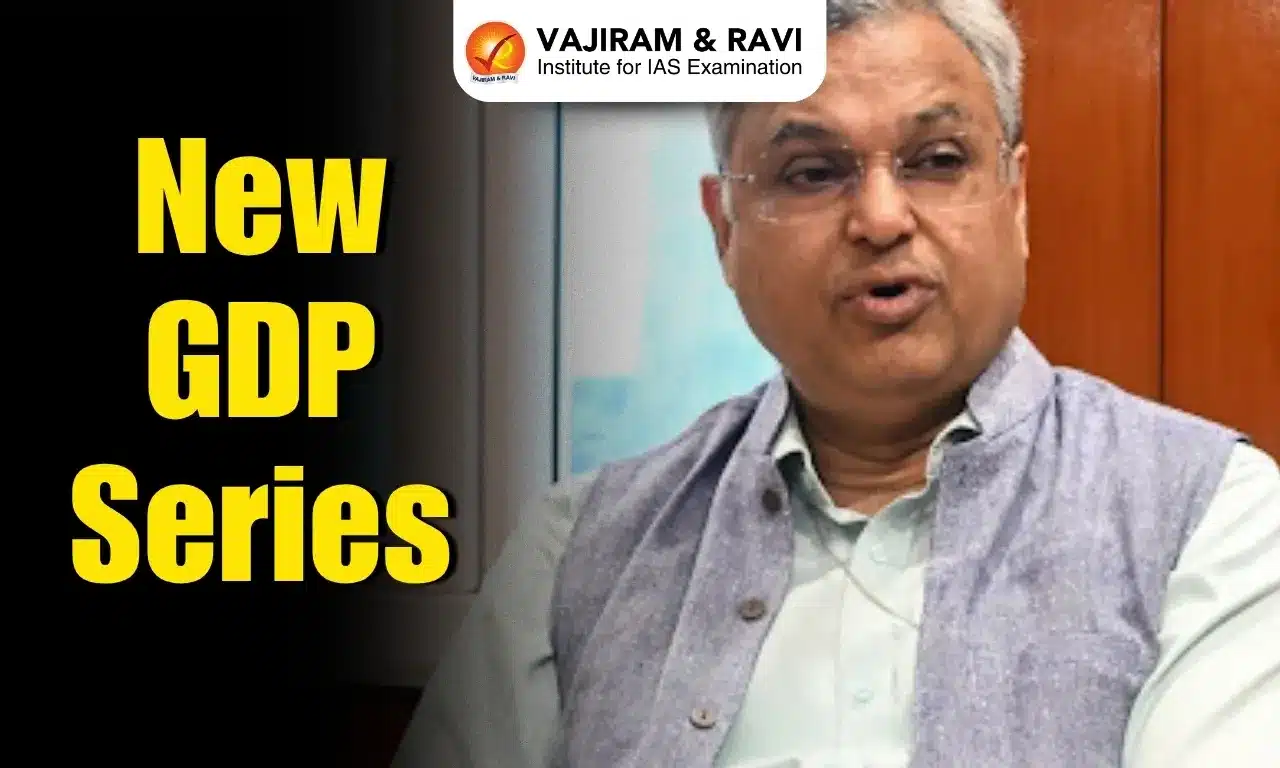What’s in today’s article?
- Why in News?
- What is India’s AI Mission?
- 7 Key Features of India AI Mission
- Significance of India AI Mission
- Changes Introduced by the MeitY under its AI Mission
Why in News?
- Under its ambitious AI Mission, the Ministry of Electronics and IT (MeitY) has relaxed some provisions in its norms to procure computing capacity for artificial intelligence (AI) solutions, addressing concerns from smaller companies.
What is India’s AI Mission?
- The PM of India at the Global Partnership on Artificial Intelligence (GPAI) Summit 2023 (New Delhi) announced that India will launch an artificial intelligence (AI) mission.
- Under the India AI Mission [to be implemented by the ‘IndiaAI’ Independent Business Division (IBD) under Digital India Corporation (DIC)], the MeitY will look –
- To establish a computing capacity of more than 10,000 graphics processing units (GPUs), which is an electronic circuit that processes images and accelerates the rendering of 3D computer graphics, and
- To help develop foundational models trained on datasets covering major Indian languages for priority sectors like healthcare, agriculture, and governance.
- AI Curation Units (ACUs) will also be developed in 50-line ministries and AI marketplace will be designed to offer AI as a service and pre-trained models to those working on AI applications.
- The implementation of this AI compute infrastructure will be done through a public-private partnership model with 50% viability gap funding.
- Of the total outlay (of Rs 10,372 crore), Rs 4,564 crore has been earmarked for building computing infrastructure.
7 Key Features of India AI Mission:
- India AI Compute Capacity: This pillar will build a high-end scalable AI computing ecosystem to cater to the increasing demands from India’s rapidly expanding AI start-ups and research ecosystem.
- India AI Innovation Centre: The Centre will undertake the development and deployment of indigenous Large Multimodal Models (LMMs) and domain-specific foundational models in critical sectors.
- India AI Datasets Platform: This will streamline access to quality non-personal datasets for AI Innovation.
- India AI Application Development Initiative: This will promote AI applications in critical sectors for the problem statements sourced from Central Ministries, State Departments, etc.
- India AI FutureSkills: It is conceptualised to mitigate barriers to entry into AI programmes and will increase AI courses in undergraduate, Masters level, and Ph.D. programmes.
- India AI Startup Financing: This pillar is conceptualised to support and accelerate deep-tech AI startups and provide them with streamlined access to funding to enable futuristic AI projects.
- Safe & Trusted AI: This pillar will enable the implementation of responsible AI projects including the development of indigenous tools and frameworks.
Significance of India AI Mission:
- The India AI Mission will further the vision of Making AI in India and Making AI Work for India.
- It seeks to showcase the international community the positive applications of the revolutionary technology for societal benefit, thereby elevating India’s global competitiveness.
- It will establish a comprehensive ecosystem catalysing AI innovation through strategic programmes and partnerships across the public and private sectors.
- It will drive forward creativity and enhance internal capabilities, safeguarding India’s technological autonomy.
- Additionally, it will generate employment opportunities that require advanced skills, tapping into the country’s demographic advantage.
Changes Introduced by the MeitY under its AI Mission:
- Key changes include:
- Lowered annual turnover requirements:
- For primary bidders, it has been reduced from Rs 100 crore to Rs 50 crore, and
- For non-primary members, it has been halved to Rs 25 crore.
- Lowered annual turnover requirements:
- This adjustment aims to include more start-ups in the bidding process.
- Reduced computing capacity requirements: For instance, the requirement for FP16 performance has been cut from 300 TFLOPS to 150 TFLOPS, and AI compute memory has been reduced from 40 GB to 24 GB.
- Experience criteria: Companies must now demonstrate prior experience in providing AI services, including the number of clients served and minimum billing of Rs 10 lakh over the past three financial years.
- Local sourcing mandate: Bidders are required to source components for cloud services from Class I or Class II local suppliers, promoting the ‘Make in India’ initiative.
- Data sovereignty: All AI services must be delivered from data centers within India, ensuring that user data remains within the country’s borders.
- Public-Private Partnership (PPP) model: The implementation will follow a PPP model, with 50% viability gap funding. A significant portion of the budget (Rs 4,564 crore) is allocated for building computing infrastructure.
- Significance of these changes: These changes are expected to facilitate greater participation from smaller firms, enhancing the AI landscape in India.
Q.1. What is data sovereignty?
Data sovereignty is the idea that data is subject to the laws of the country or region where it’s generated or stored. It’s important because it protects data from unauthorized access and breaches, and ensures businesses have access to their data in case of a disaster.
Q.2. Which law governs data sovereignty in India?
India’s data sovereignty laws are governed by the Digital Personal Data Protection Act (DPDPA), which was passed by the Indian Parliament in 2023.
Source: To accommodate start-ups, MeitY relaxes AI compute procurement norms
Last updated on March, 2026
→ UPSC Notification 2026 is now out on the official website at upsconline.nic.in.
→ UPSC IFoS Notification 2026 is now out on the official website at upsconline.nic.in.
→ UPSC Calendar 2026 has been released.
→ UPSC Final Result 2025 is expected to be released soon.
→ UPSC will release the UPSC Toppers List 2025 with the Civil Services final result on its official website.
→ Check out the latest UPSC Syllabus 2026 here.
→ Join Vajiram & Ravi’s Interview Guidance Programme for expert help to crack your final UPSC stage.
→ UPSC Mains Result 2025 is now out.
→ UPSC Prelims 2026 will be conducted on 24th May, 2026 & UPSC Mains 2026 will be conducted on 21st August 2026.
→ The UPSC Selection Process is of 3 stages-Prelims, Mains and Interview.
→ Prepare effectively with Vajiram & Ravi’s UPSC Prelims Test Series 2026 featuring full-length mock tests, detailed solutions, and performance analysis.
→ Enroll in Vajiram & Ravi’s UPSC Mains Test Series 2026 for structured answer writing practice, expert evaluation, and exam-oriented feedback.
→ Join Vajiram & Ravi’s Best UPSC Mentorship Program for personalized guidance, strategy planning, and one-to-one support from experienced mentors.
→ Check UPSC Marksheet 2025 Here.
→ UPSC Toppers List 2024 is released now. Shakti Dubey is UPSC AIR 1 2024 Topper.
→ Also check Best UPSC Coaching in India


















